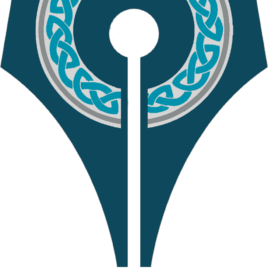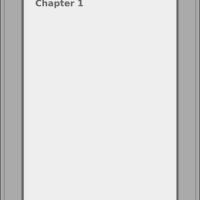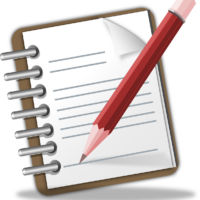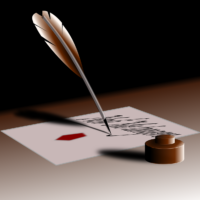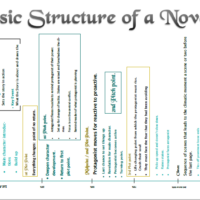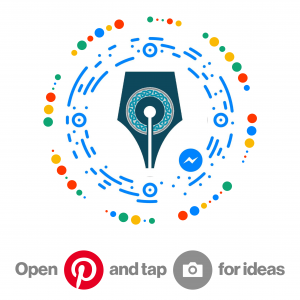
by Anna Johnstone | Jan 22, 2019 | Blog
Good morning!
Welcome to another Tuesday round-up. This week we have another great podcast from The Creative Penn (okay, total fangirl) discussing running a one-person business, the Kobo Writing Life talks about podcasting as content marketing., and the Writership podcast discusses scene and story resolutions. In articles, we have two very informative articles on shrinking author incomes, and another on corporate censorship and their unchecked power. I’ve not had time to check out videos for this week’s round-up, but hopefully, I’ll be able to gather a few links for next week.
Happy reading!
The Disastrous Decline in Author Incomes Isn’t Just Amazon’s Fault
The bookselling behemoth is making life harder for writers, but so is the public perception that art doesn’t need to be paid for.
Publisher's Weekly | Breaking Down Financial Woes for Writers
In an effort to gather as much information as possible about how much authors earned in 2017, the Authors Guild conducted its largest income survey ever last summer, reaching beyond the guild’s own members to include 14 other writing and publishing organizations. In all, the survey drew 5,067 responses from authors published by traditional publishers and from hybrid and self-published authors as well.
Corporate Censorship Is a Serious, and Mostly Invisible, Threat to Publishing
When state or civil authorities blacklist books, the act is correctly labeled censorship. But what is the word when corporations order their subsidiaries to snuff out information?
The Creative Penn | How To Be A Successful Company Of One With Paul Jarvis
What if you could scale your revenue without growing your expenses? What if you could make a living with your writing but still remain alone in your writing room? I discuss these questions and more today with Paul Jarvis.
In the intro, I talk about second-hand book sales [Dean Wesley Smith], how the death of poet Mary Oliver can help deepen our writing [listen to her on the On Being Podcast], why ‘sparking joy‘ is so important (referencing Marie Kondo on Netflix), plus the Kickstarter for Intellectual Property Tracking.
Kobo Writing Life | Ep 133 – Let’s Talk Podcasting with Amanda Cupido
n this week’s episode, Cristina sits down with author and podcast producer Amanda Cupido to talk about her book Let’s Talk Podcasting: The Essential Guide to Doing it Right. Amanda talks about how she got into podcasts, the difference between podcasts and older media such as radio, and she discusses the underrepresented voices in the podcasting community. Amanda also shares her tips for starting your own podcast and the most common roadblock that aspiring podcasters encounter.
Writership Podcast | Ep. 136: Resolutions
We all have some idea of what a resolution is, but what are these scene and story-enders meant to do? In this episode, I explore scene and story resolutions in the context of C. Gabriel Wright’s LBGTQ love story, “Someone.” The editorial mission encourages you to collect resolutions by reading and watching stories—and from your own life.
by | Apr 7, 2017 | Advice, Blog
Proofreading and copyediting, while not nearly as entertaining as the writing process to some (a lot of us quite enjoy it), is still important. For many authors who don’t outline editing is a chance to iron out plot holes and check character arcs. For others, it’s a chance to flesh out some parts you might rush through just to finally finish creating the bones of the story but that’s the bigger picture. This post covers some of the reasons why DIY editing, is not always a good idea. There is no substitute for properly and carefully checking your own work for errors or, if the mere idea of proofreading sends you straight to the Land of Nod, hiring someone like me.
1. It won’t catch caption errors, transpositions, inconsistent formatting or repeated text.
There is no way around it. So long as you’ve spelled each individual word correctly, it will not bring it up. The red and blue squiggly things in Word are a guide but they are only as reliable as to human being who programmed them. A spellcheck is set to look for individual words but it doesn’t always see them in context. Typing ‘form’ instead of ‘from’ won’t be picked up as an error. A spell checker is no substitute for knowing the rules of grammar and punctuation. How will you know if the suggested change is correct if you don’t understand how commas work in the first place. You’ll never catch every mistake on your own, but you have a good chance of creating some new ones if you rely solely on the automatic functions of your word processor.
2. Proofreading is more than a manual spell-check.
This is the last stage of editing prior to publication. It’s vital not to leave this stage to chance. It allows you to look for colour variations, layout issues, spacing, typeface consistency, missing items, tense and tone errors, content errors, inconsistent capitalisation, that page numbers are correct, and other formatting problems. In short, this is your polish. No matter the content, presentation matters and sloppy presentation will come back to haunt you.
3. It can’t check for flow, or that the language style suits your audience.
It won’t be able to tell whether your content delivers the content promised in the title. Does the writing style of the meet their expectations? Are the facts correct? If it’s an academic work, are those facts supported by cited evidence? If my spellchecker had been able to check references, I would have had a lot fewer headaches while I was studying for my degree but I would have still checked them for errors myself.
4. It cannot fact-check.
Given enough time to do their homework, a good writer should be able to write about anything. Problems occur when guessing comes in and spellcheck won’t be able to check for accuracy, homophones, mixed metaphors or awkward similes.
5. Over-familiarity with the text.
You’ve been staring at your essay for days. Constructing arguments, deconstructing sources, and now you are finally able to submit your assignment to your tutor. This is the trouble. You will read what you expect to see on the page and this will lead to errors being missed. Even leaving it for a few days will not entirely eliminate this problem. Human memory cannot be trusted. This reason alone is reason enough to recruit an extra pair of eyes. Couple this with the limited ability of your average built-in spell-checker and you have the ideal conditions for missing some very embarrassing gaffes.

